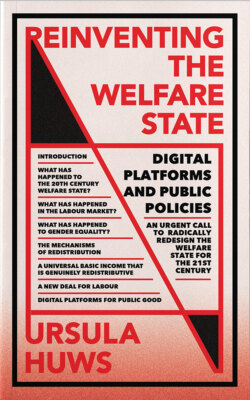Читать книгу Reinventing the Welfare State - Ursula Huws - Страница 14
На сайте Литреса книга снята с продажи.
POST-WAR CIRCUMSTANCES FORGED UNUSUAL SOLIDARITIES
ОглавлениеThe British welfare state was forged in very special circumstances. A population with vivid memories of the horrors of the 1930s depression and the risks and deprivations and losses of the war had got used to centralised planning and rationing. A capitalist class still largely made up of nationally based companies was unusually minded to make concessions to labour amid genuine fears that workers would otherwise turn to communism. The old divisions between organised workers and what Marxists call the ‘reserve army’ of labour were criss-crossed by bonds, if not of strong solidarity, then at least of some mutual understanding. People who had stood together in ration queues and fought alongside each other in the war could unite around some common aspirations, not least the desire for a Labour government. And, as that government’s plans began to be realised, further commonalities could emerge, even between groups that had historically seen their interests as opposed. In many cases, the securely employed and the potentially unemployed lived on the same new council estates, had their vaccinations at the same clinics, sent their kids to the same schools, recovered from their illnesses in the same hospital wards and listened to the same radio programmes. Common experiences nurtured mutual understanding.
It was possible in such a climate for the trade unions that represented organised workers to support demands that went beyond the sectional interests of their own members and extend them to cover the whole population. Universality was a key feature of the Beveridgean model: universal pensions, universal social insurance, universal child benefit, universal health coverage and universal access to education. And it was possible for this universality (and corresponding unconditionality) to be supported at least in part by the trade unions because it was clearly seen as in the general interests of the whole working class for it to be so. This was not just a case of ‘there but for the grace of God go I’ on the part of organised labour but an understanding among organised workers that their best protection against being undercut by cheaper labour, or scab labour, lay in ensuring that this reserve army would never be so desperate as to be induced to take a job at a lower rate or cross a picket line.
There was thus a material basis for solidarity between organised labour and the unemployed, expressed in the policies of the Labour Party – a solidarity that took institutional form in the kinds of tripartite structures that still exist today in some European social democracies, based on the notion that it was possible to have employers’ federations representing most national employers and trade unions representing most of the national workforce, in dialogue with each other and with the national government, hammering out national plans for national industries. This notion, however, presupposed that national states were sovereign, with the powers to discipline both corporations and individuals on their territories.
The welfare systems that were constructed in these negotiations were intended to be redistributive. Companies and individuals paid into a system from which everybody benefited, with the sick, the disabled, the elderly, the unemployed and households with children able to take out more than they put in. In general, the discourse referred to need, rather than ‘scrounging’. It is wrong to over-sentimentalise this picture, however. Claimants were subjected to all sorts of petty humiliations by bureaucrats, and the system was far from perfect. Nevertheless, it represented an historically unprecedented – if still limited – redistribution from capital to labour, orchestrated by the state.
